Climate Smart Economic Empowerment

There are three interlinked barriers to sustainable development addressed by this programme: youth unemployment, climate change and food insecurity.
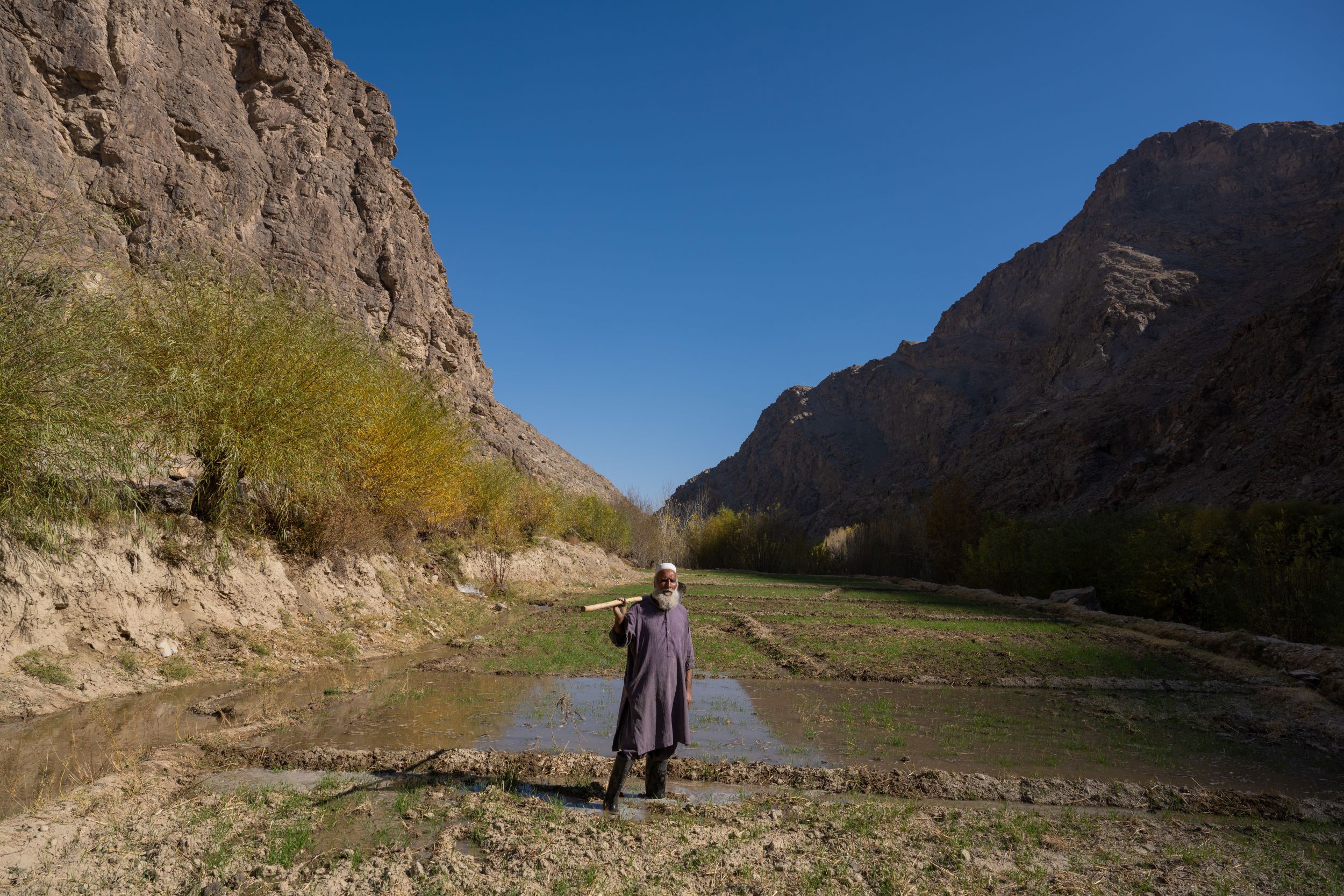
In 2023, we helped more than
172.000
of small scale farmers applying climate smart agriculture.
In 2023, we helped more than
38.000
people significantly increased their income through improved productivity and market access.
NCA responds to this by increasing people’s access to climate smart food production systems, jobs, and other income opportunities. This is done in order to reduce unemployment, strengthen food security and income opportunities, and build people’s resilience to climate change and other shocks. The result is empowered people able to lift themselves out of poverty and better contribute to creating safer and more resilient communities.
Related Sustainable Development Goals
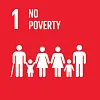

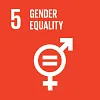

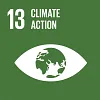

NCA´s response
The goal of NCA’s Climate Smart Economic Empowerment programme is to enable people to lift themselves out of poverty while building communities’ resilience.
Within this programme, NCA and its partners aim to
- increase income for small-scale producers and service providers
- ensure that climate resilient production and service systems are in place
- ensure that jobs and entrepreneurship opportunities are created for youth
CR-WASH in Humanitarian Responses
NCA implements humanitarian WASH responses according to international technical standards and following the Humanitarian Principles. Humanitarian responses can be implemented directly by NCA personnel and/or by partners, depending on the contingent situation. NCA commits to involve national partners and promote their contextual knowledge in humanitarian responses.
CSEE in Long-term Development Work
The programme supports food producers to increase productivity and income, and contributes to value addition of production/services, with attention on women and youth.
To achieve this, smallholders are provided with knowledge and skills on climate-smart production practices, value addition techniques and entrepreneurship skills. This is combined with access to affordable inputs such as equipment, agricultural inputs (seeds, fertilisers) and technologies, digital innovations such as renewable energy, and finance (including through saving and loan groups). Producer groups are organised so members can achieve economies of scale, improve market access for their products and services, and enter pro-poor value chains. NCA identifies scalable models where NCA and partners can initiate market-based solutions for local economic development.
NCA’s Micro Investing approach plays an important role in achieving increased income for small-scale producers and service providers while building climate resilience. This scalable approach requires a financial investment from small-scale producers who in turn are supported by a team of agronomists and suppliers. The smallholder is introduced to modern technology and their productivity is boosted so that profits can be reinvested for further growth. A series of subsequent micro investments allows the smallholder to gradually increase the return on their work capacity and acreage.
Creating an enabling environment for smallholders and small-scale entrepreneurs, and removing barriers to economic activities and production, are also integral elements of this programme. So too is promoting climate smart production systems that boost income and diversify livelihoods, while at the same time enhance climate change coping strategies. Resilience to climatic risks will be built at the community level, whilst individuals will be encouraged to foster climate smart agricultural practices.
As lack of relevant skills is a key contributor to unemployment, NCA supports young women and men to enter vocational education and other types of skills training, and links youth with job markets or entrepreneurship opportunities. Emphasis is put on commodities and services where women and youth can play an active role, and the programmes addresses barriers for women’s participation in certain skills and jobs.
Collaborating with Faith Actors and Civil Society
NCA works in close collaboration with local faith-based organisations and NGOs, specialised NGOs, local private sector stakeholders in value chains (input suppliers, processors, buyers, etc.) as well as international companies that can, for example, contribute with technologies, innovation and knowledge. NCA also works closely with academia and research institutions.
NCA is a member of the GROW network. GROW is a strategic partnership/network of Norwegian Non-Governmental Organisations that work to promote food security, climate adapted agriculture, resilience building, value chain development, strengthening of farmers’ organisation and vocational training within the small-holder agriculture sector in marginalised rural communities in developing countries. The network comprises currently 6 organisations: Utviklingsfondet (The Development Fund), Caritas, Norges Vel, CARE Norge, Norwegian Church Aid (NCA) and Plan International Norway. The value-added of the network is a collaborative approach, including establishing a community of practice, interacting on a regular basis to share best practice and create new knowledge.
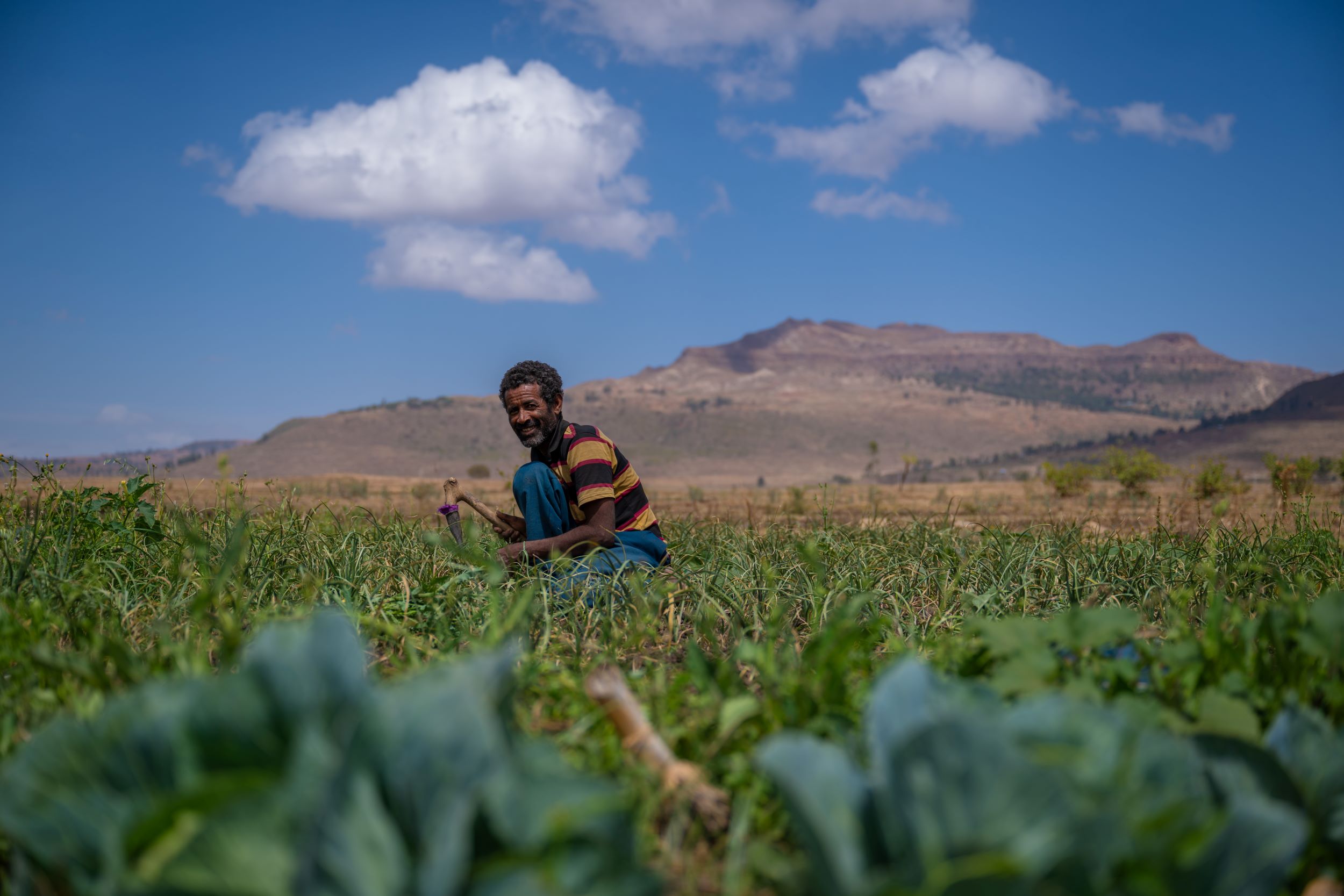
Economic Empowerment 2016-2018
Result cases
What if smallholders, representing 7 out 10 of the world’s poor, could permanently escape poverty in less than a year, at a declining unit cost, starting around USD 100?
Smallholders supply 70% of overall food production, and yet many smallholders still suffer from food insecurity and malnutrition. The demand for food in Sub Sahara Africa is expected to triple before 2050. An overarching question of NCA is How can smallholders earn more money and get out of poverty? Micro Investing is emerging as one of the most attractive approaches NCA has tested in the programme period, as it
- is relevant to a large portion of the population in the poorest countries
- is market-based and allows NCA to take a limited and catalytic role
- leads to rural economic development and new opportunities for women and youth
- incorporates climate smart agriculture
So, what is Micro Investing? Through the introduction of micro sized and affordable drip irrigation, good seeds and industrial plant nutrition, and by switching to crops that give continuous supply with limited processing and logistics, smallholders increase their income while using less land and water. The practice is environmentally sustainable and climate smart. The approach is called "Micro Investing", as it is based on savings to support self-sustainable growth from the start. No hand-outs or soft credit is offered. Smallholder farmers are approached as customers and self-select into the program.
Micro Investing has created avenues for self-employment and contributed to equitable distribution of incomes and reduction of poverty in line with national poverty indicators in countries like Tanzania and Malawi. Micro Investing has proven to help poor smallholders lift themselves out of poverty more effectively than for example through microfinance. The affordable investment of around USD 10 has enabled most vulnerable households to increase their incomes beyond the international poverty threshold of USD 1.90 per day. The Micro Investing methodology has also been tested at a small scale in Burundi, Somalia, Sudan and Zambia, and is planned to be rolled out and scaled up in several NCA’s programme countries in the coming years.
Some stories about micro investors in Tanzania:
Lightness Mushi from Kilimanjaro was left with three children when her husband abandoned the family. In April 2018, she borrowed some money in her loan and savings group to invest in micro investing kits consisting of simple drip irrigation, seeds and some fertilizer for two vegetable beds. From the income from the vegetables she produced, she reinvested some of the profits and doubled her capacity three times. Less than a year later, she had 18 vegetable beds that generated enough income to send her children to boarding school, install electricity and build a cow shed. Her weekly profit from the vegetable garden after having paid seeds, fertilizer, pesticide and water bills is USD 105, which is USD 15 a day.
Dodo Matambo is married and a father of six children. Dodo lives in the small village of Gedamari, Galapo Ward in Babati District, Northern Tanzania. Dodo invested USD 12 in micro investing kits for two vegetable beds. Harvest by harvest, Dodo has reinvested parts of the profit from the beds in new beds, increasing his capital throughout and has now expanded to sixty beds. He is now growing various types of vegetables and fruits. After one year of practice, Dodo Matambo scaled up his existing enterprise in horticulture by investing an additional USD 430 obtained from both the sales of vegetables and savings from saving and loan groups (VICOBA). With his new investment, Dodo generates USD 275 monthly. He has been able to pay his children’s school fees, buy agricultural inputs and shares in VICOBA, and build a 4-bedroom house instead of the 2-bedroom house he lived in earlier.
Imagine life without electricity. It is quite hard, as most of us are used to unlimited, stable access to energy and only need to flip a switch to get power. More than 1 billion people around the world do not have access to electricity, resulting in limited opportunities to develop their lives and create income and economic activities.
NCA and BRIGHT Products AS have carried out the project “Education 4 Sustainability” in Somalia and Burundi with support from Innovation Norway’s Vision 2030 grant. The project had a unique approach of combining solar energy with education and income generating activities. The project was one of the finalists for the sustainability award “Årets Håndtrykk 2018” by Storebrand in Norway.
Energy Access for Marginalised Populations
The two East African countries, Somalia and Burundi, both suffer from limited access to energy, especially in rural areas. Multiple natural disasters, armed conflicts combined with long-term political and economic instability has affected the countries for years, making it difficult for the population to prosper. Access to affordable and renewable energy is a catalyst for development. Being self-sufficient with energy in each household is often the most reliable solution in countries like Somalia and Burundi.
Electricity grid connection is often expensive and unstable, and most often it is not available in rural areas at all. Alternative, unclean energy sources such as coal, kerosene and one-time use batteries are both costly and unsafe. Deforestation and land degradation are huge problems in many African countries, resulting in loss of biodiversity, land productivity, supply of water, increasing the risk of negative climate change. One family can save an average of more than USD 200 annually by replacing such unclean energy with an independent and sustainable solar energy product. With the more that 300 sunny days annually in Somalia and Burundi, there is a great potential for solar energy.
Education for Self-Reliance
BRIGHT developed a new digital e-learning tool, in collaboration with Leap Learning and NCA, especially for people wanting to become independent entrepreneurs. The education tool provides entrepreneurial skills and knowledge about solar energy through an interactive approach using apps, videos and multiple-choice games to engage the learner. NCA used this tool to train a total of 400 participants, mostly unemployed women and youth in Somalia and Burundi, and provided them with the needed skills to improve their livelihoods.
Over 500 quality solar products were sold in the project period, giving the participants the self-reliant opportunity to buy or resell solar energy products. With the mobile payment technology, pay-as-you-go, the solar products can be paid off in small instalments, making it possible and affordable for anyone to start using solar energy.
Independent Solar Entrepreneurs
Despite the complex settings of Somalia and Burundi, “Education 4 Sustainability” has achieved great results:
- 389 participants have been educated in entrepreneurship and solar energy using e-learning tools
- 75% of them have actively used the education to engage in entrepreneurial activities or run their own business
- 50% of them have purchased a solar product to be used in their home, shop or business
- 25 entrepreneurs have started their own business by becoming local resellers of BRIGHT´s solar products, offered with pay-as-you-go mobile down-payment
- 95% of BRIGHT’s Solar Home Systems were sold within the first two months to families or business owners in the local community
- The educated solar entrepreneurs earn commission on each sold product. All the solar products have been sold in their surrounding areas.